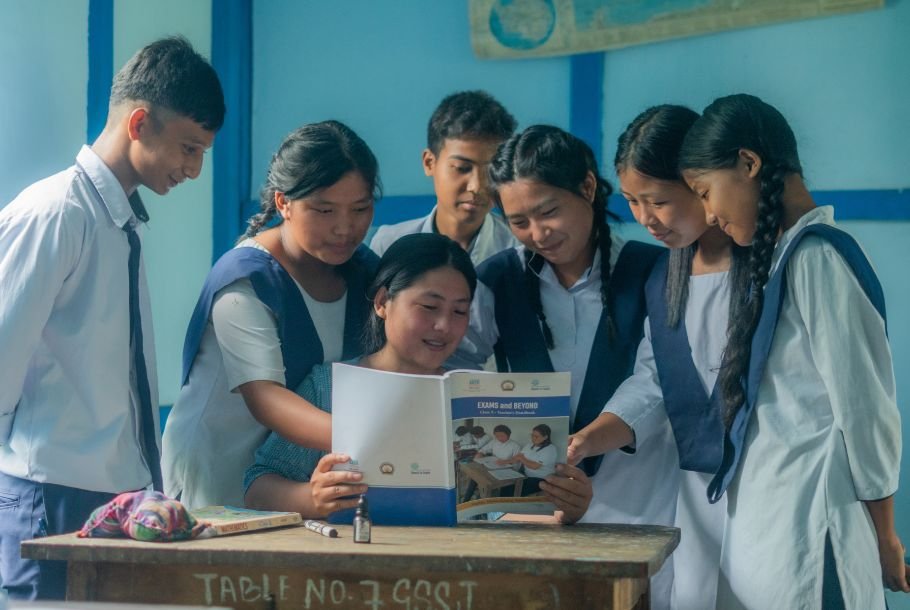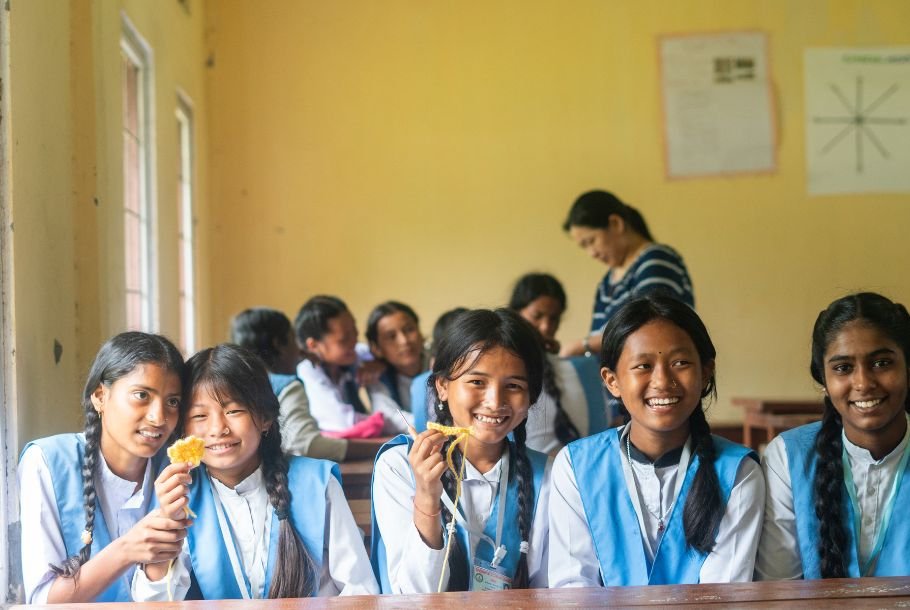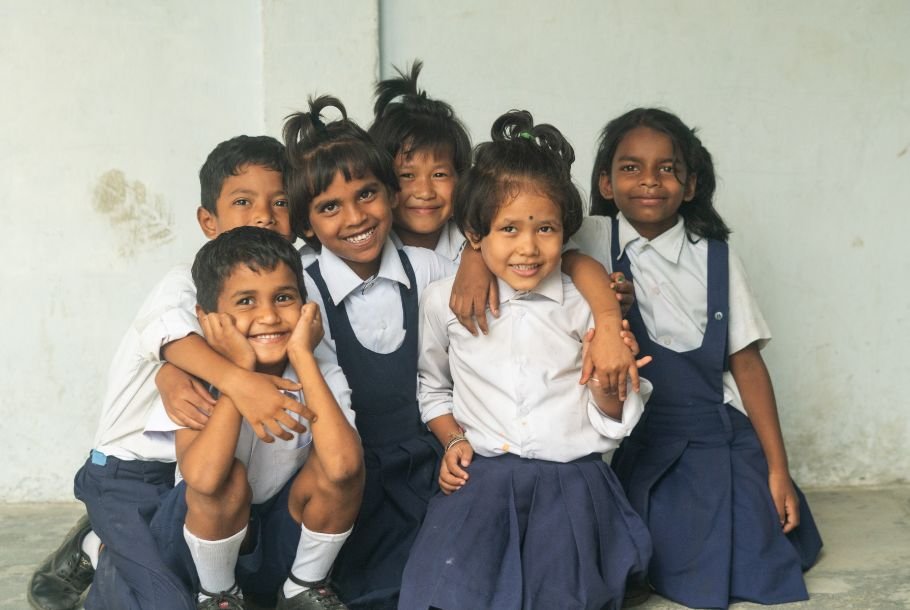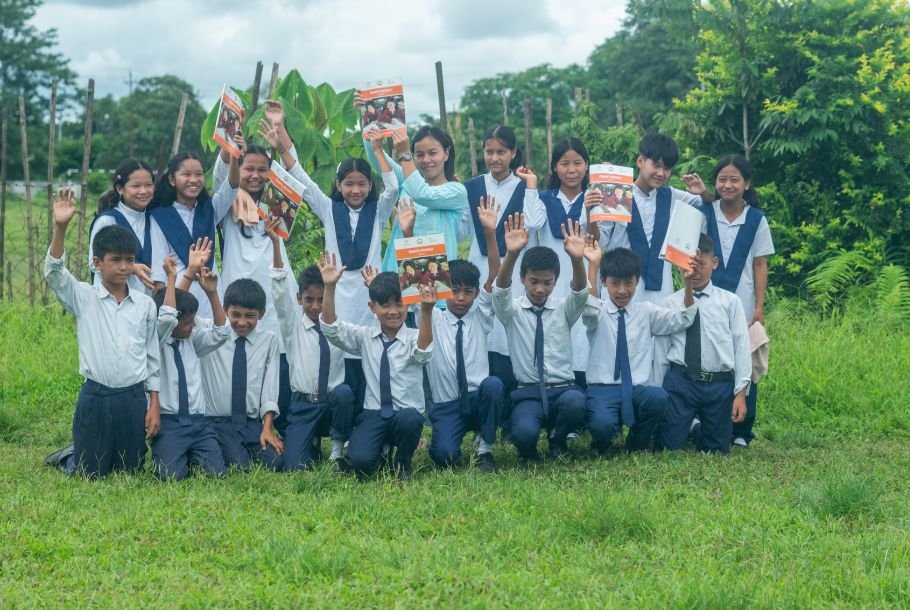
Reach to Teach Foundation
In India’s easternmost frontier lies Arunachal Pradesh, consisting of a cornucopia of languages, different tribes, each with their own cultural nuances and varied terrain – from deep valleys to high mountains. With 2804 Government schools serving 1.63 lakh students and 15,871 teachers and Head Teachers across 28 districts, the State Education Department of Arunachal Pradesh recognises the need to ensure children achieve their learning benchmarks across Grades 1 to 12.
In the wake of the Covid-19 pandemic, Arunachal Pradesh’s performance in national level education indices indicated a need for focused interventions to bring to state at par with national standards. In the SDG India Index 2021, the State was categorised as Aspirant in SDG 4 (Quality Education). The Performance Grading Index (PGI) 2021 of the Ministry of Education had the state scoring 458 out of 1000 across critical domains such as Learning Outcomes and Quality, Teacher Education and Training, amongst others. The National Achievement Survey (NAS) 2021 conducted by the Ministry of Education revealed that the State’s performance had slipped compared to 2017 levels.

As per ASER 2021, only 10.7% of Class III students could read a Grade II-level text, and just 35.8% could solve basic subtraction problems. In 2022–23, Class 10 pass rates stood at 39.7% and Class 12 at 61.2%, prompting the State Cabinet to set a 10% improvement target. While the State was making efforts to improve access and infrastructure, there was an imperative need to compliment this by focusing on children’s learning levels with a focus on strengthening Learning Outcomes. These data points brought into focus the need for a comprehensive response that went beyond piecemeal interventions—one that could simultaneously strengthen pedagogy, build institutional capacity, and secure long-term ownership by the Government, teachers and community.
On the second anniversary of the National Education Policy (NEP) 2020, we at Reach To Teach Foundation entered into a tripartite agreement with NITI Aayog and the Government of Arunachal Pradesh to design and roll out a Comprehensive Learning Transformation Programme that would strengthen the education supply chain and enable students achieve grade-appropriate learning levels, in line with the Learning Outcomes and competencies as laid out by NCERT and the National Curriculum Framework (for Foundational Stage and School Education).

With our deep belief that lasting change can only happen when it is co-created with those who deliver education every day, Reach to Teach adopted a consultative design approach that placed teachers at the centre of every intervention, while also ensuring active engagement with Government stakeholders at every tier—state, district, block, and school. Our team carried out a State Level Assessment Survey across a select set of Districts in the State, which helped us ascertain the extent of learning loss and a situational analysis gave us deep insight into the challenges and opportunities education stakeholders were facing at different levels. This helped us in structuring our work with the Department of Education and to collaboratively create design solutions that were both practical and sustainable. We designed teaching, learning and assessment materials linked to Learning Outcomes and competencies. To leverage on the natural curiosity that children possess as well as the propensity for play that engages children and adults alike, we incorporated activity based modules linked to identified learning gaps both Grade and subject linked. This was to ensure that the modules were not only pedagogically sound but also put into context to the realities of classrooms in Arunachal Pradesh. To ensure that these activities were rolled out in a standardised way across all schools of the State, we trained teachers on not only on the material produced but also engaged them to dwell on pedagogical thinking and processes. These trainings were conducted in a cascading manner, with a cadre Master Trainers picked from each District who were trained by the Foundation’s team. But support extended beyond training. For districts that needed additional help, our team travelled there to support such Master Trainers to roll out the training to peers in a structured way.

Recognising the need for supportive supervision, we worked with the Education Department to establish a cadre of District Task Forces in each district to provide on-ground support to drive the implementation of education initiatives across all schools. We also established a teacher helpline for teachers as well as officials to reach out to in case they had any queries or feedback with reference to the implementation of the instruction material created. WhatsApp groups were created for teachers as well as for the DTFs to ensure peer-support and learning, the sharing of good practices and to encourage healthy competition.
The programme has completed three years and the interventions designed and rolled out as part of the Comprehensive Learning Transformation Programme has yielded significant results with measurable gains across multiple education indices. Reach to Teach’s focused intervention led to a visible improvement in Board Exam results over two years. The State achieved a cumulative increase of 15.58% in the Class 10 pass percentage and 16.17% increase in the Class 12 pass percentage compared to 2022-23—far surpassing the benchmarks established by the State Cabinet. In the SDG India Index, Arunachal Pradesh advanced from “Aspirant” status in 2021 to “Performer” in 2024, with an 11-point gain—the highest in the Northeast. In the Performance Grading Index 2023–24, the state moved up a category with a 21.8-point improvement. In the PARAKH Rashtriya Sarvekshan (erstwhile NAS) 2024, Arunachal Pradesh surpassed its 2017 performance in FLN and also achieved more than the national average in language for both Class 6 and Class 9. Together, these shifts signal how systemic, co-created reforms are translating into stronger outcomes for learners, teachers, and the system.
Beyond numbers, the change is palpable in classrooms. Teachers report greater confidence in delivering competency-based lessons, students engage more actively because of the interactive nature of experiential activities, and officials have observed a stronger alignment between policy and practice. The journey of Arunachal Pradesh demonstrates that systemic, state-wide reforms are possible when governments and civil society work hand-in-hand. Reach to Teach Foundation has created a model where ownership and sustainability are built in from day one. Over time, these interventions have become embedded within the state machinery—no longer external projects, but institutionalised practices that will endure.
